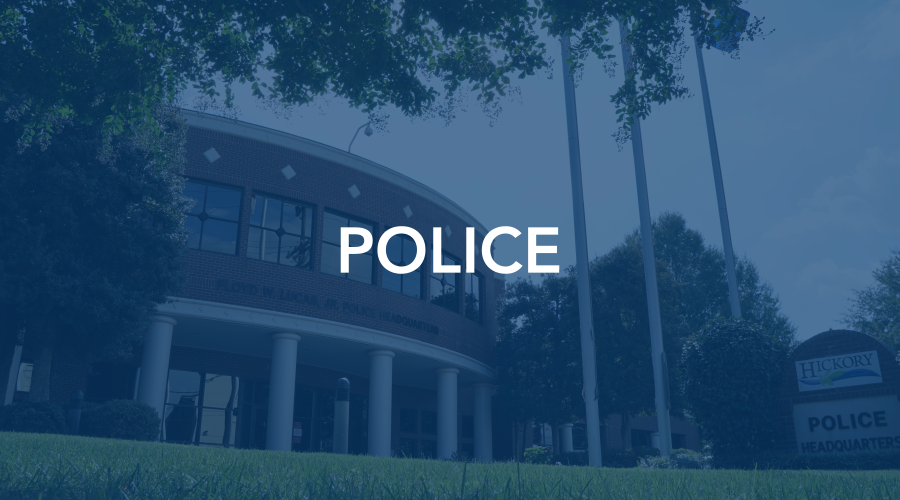Hickory Police Department joins national ABLE Project
Hickory Police Department has been accepted into the Active Bystandership for Law Enforcement (ABLE) Project, Georgetown University Law Center’s national training and support initiative for U.S. law enforcement agencies committed to building a culture of peer intervention that prevents harm.
By demonstrating a firm commitment to transformational reform with support from local community groups and elected leaders, Hickory Police Department joins a select group of more than 70 other law enforcement agencies and statewide and regional training academies from across the country.
Backed by prominent civil rights and law enforcement leaders, the evidence-based, field-tested ABLE Project was developed by Georgetown Law’s Innovative Policing Program in collaboration with global law firm Sheppard Mullin LLP to provide practical active bystandership strategies and tactics to law enforcement officers to prevent misconduct, reduce mistakes, and promote health and wellness.
ABLE gives officers the tools they need to overcome the innate and powerful inhibitors all individuals face when called upon to intervene in actions taken by their peers.
Hickory Police Chief Thurman Whisnant said seeking inclusion to join the ABLE Project reflected important priorities for the Hickory Police Department.
“The ABLE Program training aligns completely with the philosophy and core values of the Hickory Police Department,” said Chief Whisnant. “We are excited to be accepted among the first in the state and nation to be a part of this program.”
Professor Christy Lopez, co-director of Georgetown Law’s Innovative Policing Program, which runs ABLE, explained: “The ABLE Project seeks to ensure every police officer in the United States has the opportunity to receive meaningful, effective active bystandership training, and to help agencies transform their approach to policing by building a culture that supports and sustains successful peer intervention to prevent harm.”
Chair of the ABLE Project Board of Advisors, Sheppard Mullin partner Jonathan Aronie, added: “Intervening in another’s action is harder than it looks after the fact, but it’s a skill we all can learn. And, frankly, it’s a skill we all need – police and non-police. ABLE teaches that skill.”
The ABLE Project is guided by a Board of Advisors comprised of civil rights, social justice, and law enforcement leaders, including Vanita Gupta, the president of the Leadership Conference on Civil and Human Rights; Commissioner Michael Harrison of the Baltimore Police Department; Commissioner Danielle Outlaw of the Philadelphia Police Department; Dr. Ervin Staub, professor emeritus at the University of Massachusetts Amherst and the founder of the Psychology of Peace and Justice Program; and an impressive collection of other police leaders, rank and file officers, and social justice leaders.
• See the complete list of the ABLE Project Board of Advisors.
• For more information about the ABLE Project, visit the program’s website.
• See a list of the ABLE Standards to which every participating agency must adhere.
• These articles share more information about active bystandership generally, and the ABLE Project in particular.
ABLE Project Train-The-Trainer events take place every month. By the end of February, Hickory Police Department instructors will be certified as ABLE trainers; and over the coming months, all of the Department’s officers will receive 8 hours of evidence-based active bystandership education designed not only to prevent harm, but to change the culture of policing.

